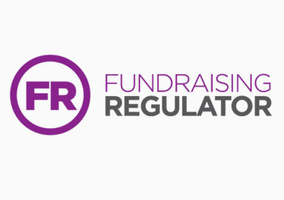Charities have urged the government to amend proposed changes to email marketing rules in order to increase annual donations by an estimated £290m.
Today, the Data & Marketing Association (DMA) wrote to science secretary Peter Kyle on behalf of its charity members, asking him to amend the data (use and access) bill to allow charities to contact people in the same way businesses can.
At the moment, people must consent to their details being used for direct marketing at the point of their data being collected.
However, commercial organisations can use a “soft opt-in” to send electronic marketing communications to a person without their consent if their details were collected during the sale of a product or service.
A previous bill laid by the Conservatives, which did not complete all its stages before the general election, proposed extending the soft opt-in to charities and other non-commercial organisations to further their objectives.
Labour’s bill, which was introduced in the House of Lords on 23 October, removes this clause.
‘Unclear why charities should be at a disadvantage’
Some 19 major charities and DMA members including the British Heart Foundation, Mind, Oxfam and WaterAid, called on the government to reinstate the soft opt-in clause for charities.
The letter says: “Clause 115 of the previous data protection and digital information bill extended the ‘soft opt-in’ for email marketing for charities and other non-commercial organisations.
“The DMA estimates that extending the soft opt-in to charities would increase annual donations in the UK by £290m. At present, the data (use and access) bill proposals remove this.
“The omission of the soft opt-in will prevent charities from being able to communicate to donors in the same way as businesses can.
“As representatives of both corporate entities and charitable organisations, it’s unclear to the DMA why charities should be at a disadvantage in this regard.”
The letter adds that while “not a silver bullet, including the soft opt-in for email marketing for charities will help facilitate greater fundraising and go some way to mitigating the additional burden while demonstrating that the government understands the important work they do for society”.
‘Time to level the playing field’
Johnty Gray, individual engagement director at Oxfam, said: “The inclusion of the soft opt-in for charities in the data (use and access) bill would be of significant benefit to the UK charity sector, which has suffered a series of financial challenges post Covid-19.
“The commercial sector has benefited from soft opt-in since the implementation of the Privacy and Electronic Communications in 2003.
“It’s now time to finally level the playing field for charities too and to allow them to similarly engage their passionate and committed audiences.
“This will correct the imbalance and will finally turn the tide; empowering them to generate increasing levels support for the causes they represent, at a time that their work has never been more needed.”
Alex Wathen, fundraising compliance manager at WaterAid, said: “In an increasingly challenging fundraising environment, the need for the soft opt-in has become urgent for charities to build meaningful relationships with their supporters without undue barriers.
“While businesses can leverage this option to communicate after a single transaction, charities are denied the same ability, even when a donor has actively chosen to support a charitable cause.
“This disparity suggests that a person’s relationship with a charity is valued less than with a retailer – an implication that is far from reality and undermines the essential support charities rely on to carry out their vital work.
“The soft opt-in offers charities a practical alternative to consent, enabling them to maintain communication with engaged supporters without the obstacles of repeatedly obtaining explicit consent.
“This helps charities maximise their engagement and build a sense of community with their supporters. Importantly, supporters retain control over the communications they receive and can easily opt out at any time.”
Related articles












